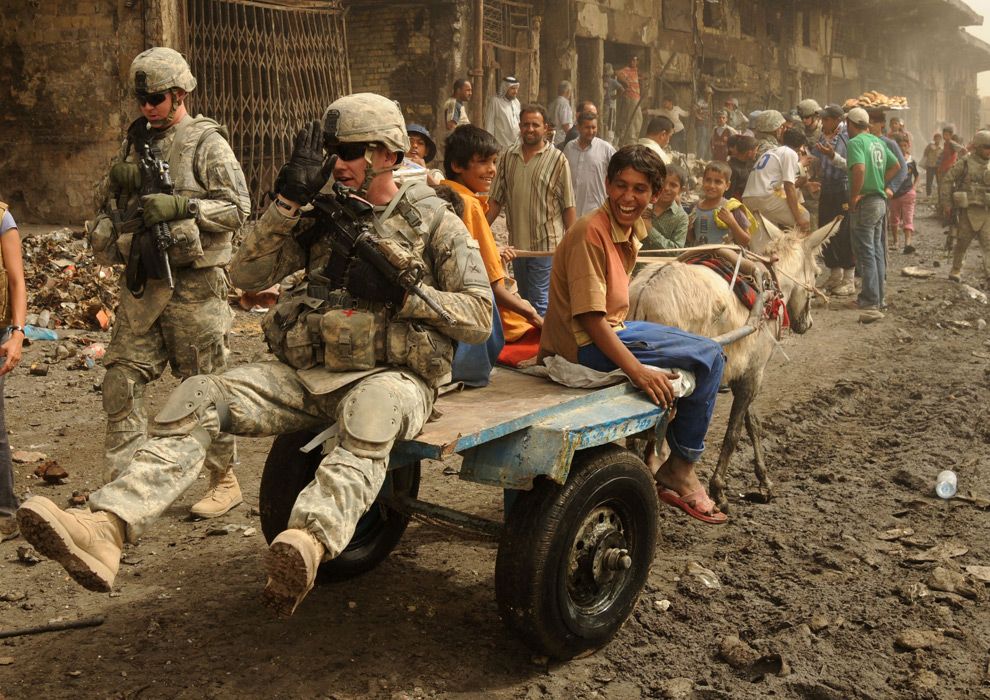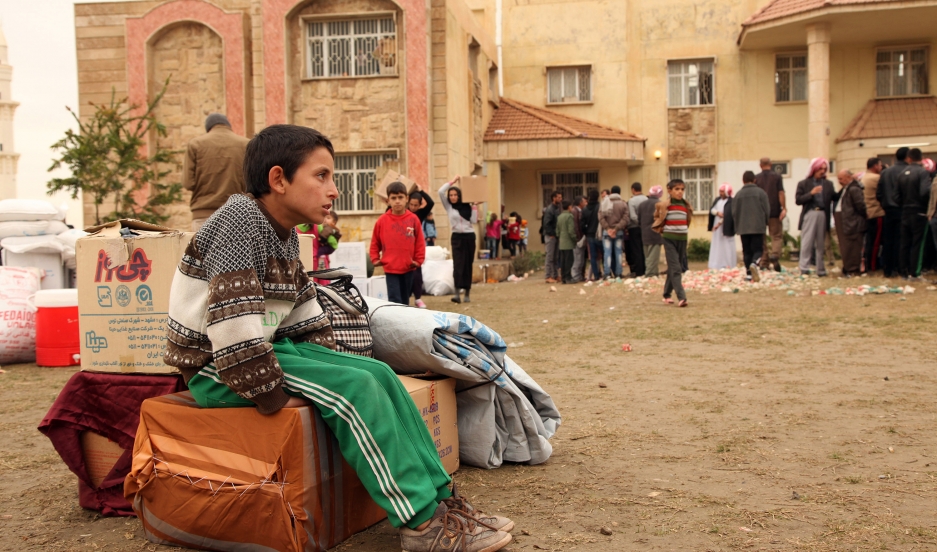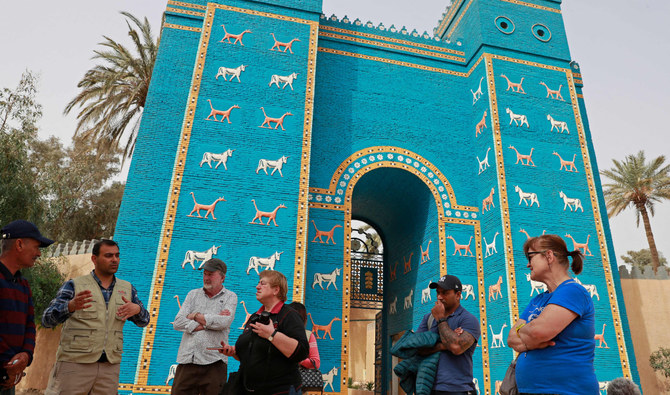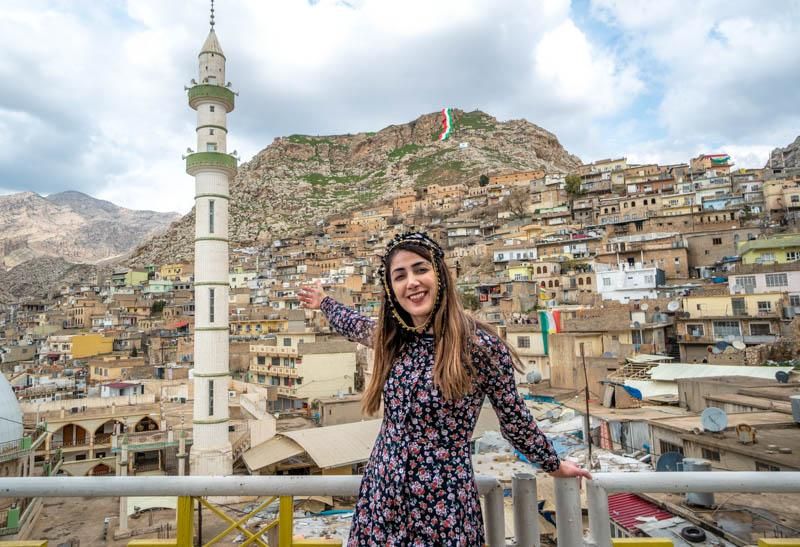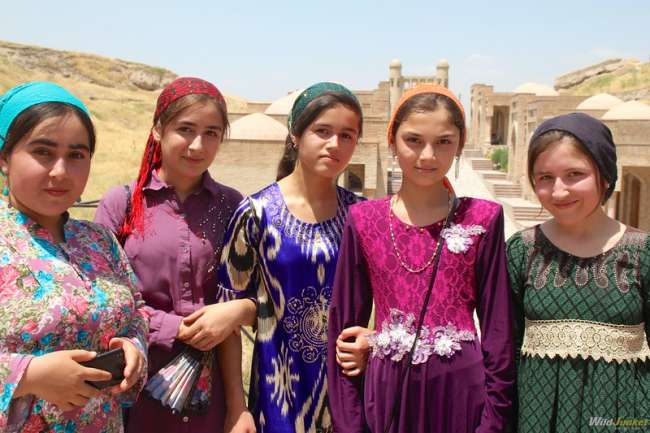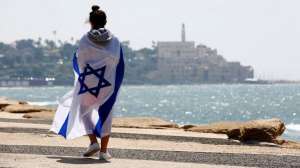Iraq’s history reads like a chronicle of human civilization itself — the cradle of Mesopotamia, the land between the Tigris and Euphrates, where writing, law, and architecture first took root. For centuries, it stood as one of the world’s great centers of learning, trade, and empire. Yet in modern times, Iraq’s story has been one of turbulence and reconstruction.
The U.S.-led invasion in 2003 and the fall of Saddam Hussein set off a complex chain of events that reshaped the country in ways few could have imagined. Governments that followed have struggled to stabilize a nation fractured along ethnic and sectarian lines. Decades of conflict have weakened the economy, left cities scarred, and displaced millions, despite the enormous potential of Iraq’s oil wealth.
In 2014, the sudden rise of the Islamic State (ISIS) engulfed much of northern and western Iraq in violence and fear. For three years, the extremist group controlled vast swaths of territory — from Mosul to Fallujah — until it was finally defeated by Iraqi forces and coalition allies in 2017. Although ISIS no longer holds land, sporadic attacks, political unrest, and the lingering effects of war continue to pose risks. Travelers today still face potential threats of terrorism, kidnapping, and civil disorder, particularly in southern and central regions.
The Difference Between Iraq and Kurdistan
While the headlines often focus on Iraq’s instability, the situation in Iraqi Kurdistan tells a very different story. This northern region, governed by the Kurdistan Regional Government (KRG), operates with a high degree of autonomy and has built a reputation for being relatively safe and welcoming to visitors.
The mountainous Kurdish provinces — including Erbil, Sulaymaniyah, and Dohuk — have largely escaped the kind of insurgent violence that plagued the rest of Iraq. The region was not penetrated by ISIS during its height, thanks to the resilience of the Kurdish Peshmerga forces. Visitors often describe Kurdistan as calm, surprisingly modern, and rich with its own proud culture and hospitality traditions.
However, politics remain delicate. The independence referendum of 2017, where Kurdish citizens overwhelmingly voted for independence, caused serious friction with the central government in Baghdad. While open conflict never fully reignited, the political aftershocks continue to influence regional relations and security. Travelers planning to visit should stay updated on current developments and always monitor the latest travel advisories before making any arrangements.
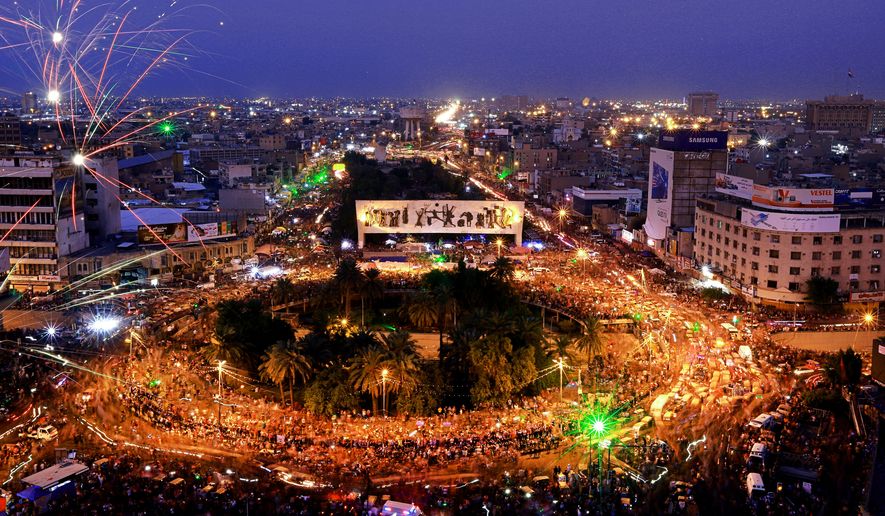
What Tour Operators Are Saying
Despite Iraq’s reputation for volatility, a handful of adventure travel companies now offer carefully managed tours to the safer Kurdish areas. These tours are designed for small groups and led by experienced local guides who understand the terrain, politics, and security landscape intimately. Most reputable agencies do not currently operate in the rest of Iraq due to ongoing safety concerns.
Jim O’Brien, from the UK-based company Native Eye, explains:
“Kurdistan, although technically part of Iraq, feels worlds apart from the rest of the country. It has its own military, the Peshmerga, and a government that manages most affairs independently. Even during the height of ISIS activity, the region remained secure, thanks to strong coordination between local authorities and community-based networks. We stay in constant contact with our team in Erbil and Sulaymaniyah, who are deeply connected with local security officials. That’s how we ensure travelers can experience the country safely and meaningfully.”
Aled Evans from Undiscovered Destinations adds:
“Iraqi Kurdistan is definitely a more stable option for adventurous travelers. While the British Foreign Office still advises caution, the region operates efficiently with strong internal security. It’s not a destination for mass tourism, but for those who do go, the rewards are immense — breathtaking mountain landscapes, ancient Assyrian ruins, and incredibly warm local people. Every traveler we’ve sent there has come back thrilled.”
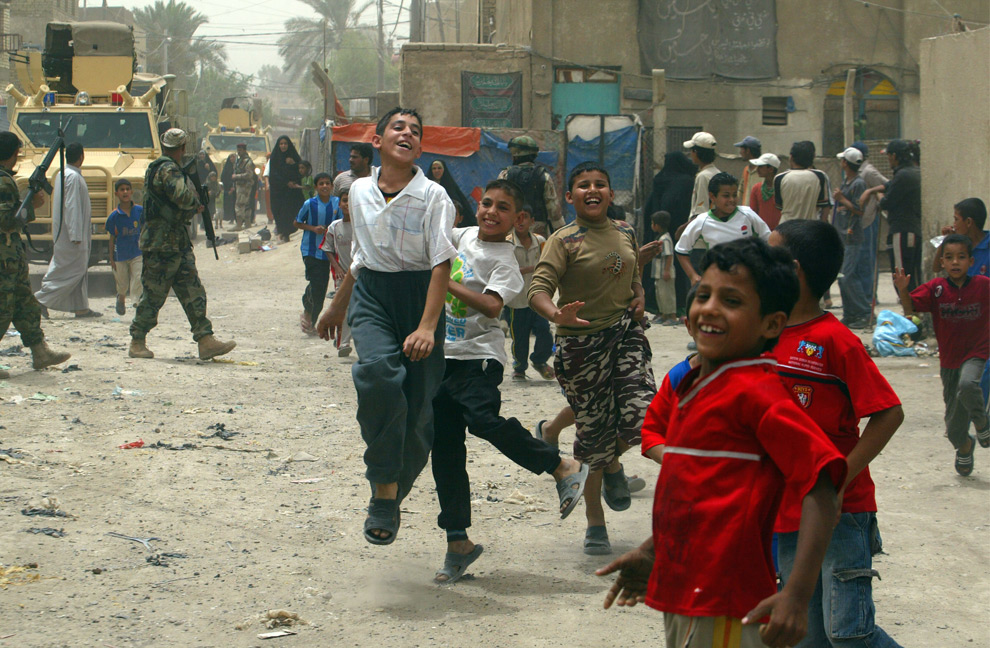
Official Guidance: What the FCO Advises
Western governments maintain a cautious stance on Iraq travel. The UK Foreign, Commonwealth & Development Office (FCDO) continues to advise against all travel to most of Iraq and against all but essential travel to parts of Iraqi Kurdistan. Their guidance warns of a persistent threat of terrorism, sporadic militia activity, and the potential for sudden political unrest.
The FCDO notes that while Kurdistan remains notably safer than Baghdad or Basra, the region’s stability can change quickly, particularly near the borders with Syria, Iran, and Turkey. Unexploded ordnance remains a serious danger in areas previously occupied by ISIS, and even major highways may pass close to volatile zones.
In 2025, these advisories remain in place. However, diplomatic sources report modest improvements in coordination between Kurdish and federal forces, which has enhanced overall security along major travel routes like the Erbil–Dohuk corridor. Still, travelers are urged to register with their embassy before arrival and maintain situational awareness at all times.
The U.S. Travel Advisory
The U.S. Department of State’s Bureau of Consular Affairs continues to issue its highest-level warning: Do Not Travel to Iraq. The advisory, updated in early 2025, lists multiple concerns including terrorism, kidnapping, armed conflict, and limited consular support.
Although Iraq has made strides toward rebuilding its economy, political divisions and the presence of armed groups still pose risks, particularly in Baghdad and southern cities. In contrast, Erbil — capital of the Kurdistan Region — remains the most accessible entry point for foreigners, with regular flights from Istanbul, Dubai, and Doha.
The Department of State further highlights that while coalition operations have scaled down, U.S. and allied forces still conduct occasional counterterrorism strikes in western Iraq. Civil aviation restrictions also remain active, with certain airspaces classified as hazardous due to residual militant activity.
Updated Iraq Travel Advisory and On-the-Ground Realities (2025)
In 2025, Iraq continues to be a nation of contrasts — a place where ancient history meets the scars of modern conflict. The U.S. Department of State still advises against all non-essential travel to Iraq, and that warning applies nationwide, including Baghdad and southern cities like Basra, Najaf, and Karbala.
However, the Kurdish north — encompassing Erbil, Sulaymaniyah, and Dohuk — remains a notable exception, drawing a small but growing number of intrepid travelers and journalists who enter via direct flights from Turkey or the Gulf states.
While tensions occasionally flare between Kurdish and federal forces, and protests still break out in Baghdad over economic and political grievances, the overall security picture in the north has improved slightly since 2023. Regional tourism boards in Erbil report a gradual return of business visitors and archaeologists, and a few boutique hotels have reopened after years of closure.
Still, the U.S. advisory underscores ongoing dangers: sporadic terrorist attacks, risk of kidnapping (especially of Westerners), and occasional rocket or drone strikes aimed at diplomatic or military installations. These threats tend to cluster around Baghdad, Nineveh, and areas close to the Syrian border. For this reason, anyone considering travel is urged to plan with precision and remain connected to local contacts or official agencies at all times.
Guidance from U.S. and International Agencies
The 2025 update from the U.S. Department of State’s Bureau of Consular Affairs outlines the following main risks for Americans and other foreign nationals traveling in Iraq:
-
Terrorism and Armed Conflict:
Although ISIS no longer holds territory, remnants of the group and other militias remain active in pockets of northern and western Iraq. Attacks using improvised explosive devices (IEDs) and small-arms ambushes are still reported. -
Kidnapping:
Foreigners, aid workers, and journalists are prime targets for both criminal and political kidnappings. The threat level remains high, particularly along highways and near provincial borders. -
Civil Unrest:
Protests in Baghdad, Basra, and Nasiriyah continue intermittently due to unemployment and government corruption. Demonstrations can turn violent without warning. -
Infrastructure and Emergency Support:
Many regions suffer from unreliable electricity, limited healthcare facilities, and road checkpoints that may be closed without notice. -
Airspace Restrictions:
The Federal Aviation Administration (FAA) maintains its warning to civil aviation. Flights operating through or near Iraq’s airspace must follow strict altitude and routing regulations due to the potential threat of missile or drone activity.
The Department strongly advises all U.S. citizens traveling to Iraq to enroll in the Smart Traveler Enrollment Program (STEP). This free service enables travelers to receive security updates and helps the embassy contact them in emergencies.
Practical Advice for Travelers in 2025
If, despite warnings, one decides to travel to Iraq — whether for professional, humanitarian, or journalistic purposes — meticulous preparation is essential. Based on official guidance and reports from travelers who have visited the Kurdistan Region recently, here are the current key recommendations:
-
Register Your Presence:
Before arrival, contact your embassy and provide travel details, including accommodation and itinerary. Keep the embassy’s emergency contact information readily accessible. -
Work with Reputable Local Guides:
Only travel with licensed tour operators or fixers who are familiar with regional checkpoints, security updates, and safe routes. -
Avoid Night Travel:
Most incidents occur after dark. Always plan transportation during daylight hours and use vetted drivers. -
Checkpoints and ID:
Carry multiple forms of identification at all times — passport, visa, and local entry permit. Expect numerous checkpoints between provinces, even within Kurdistan. -
Health and Insurance:
The World Health Organization (WHO) continues to warn of strained healthcare capacity. Travelers should carry a medical kit and comprehensive evacuation insurance that covers war zones or political unrest. -
Stay Connected:
Local mobile networks in Kurdistan are reliable; in central and southern Iraq, however, coverage can fluctuate, especially outside cities. Use encrypted messaging for sensitive communications. -
Cultural Respect and Awareness:
Iraq remains a conservative society. Dress modestly, avoid photographing military or police installations, and always ask permission before photographing people. -
Stay Informed:
Check daily updates from reliable international and local media. Both the Rudaw and Kurdistan 24 news networks provide accurate English-language reports on regional developments.
2025 Conditions in Kurdistan: A Small Glimmer of Hope
In recent months, the Kurdistan Regional Government (KRG) has quietly been reopening tourism initiatives. A handful of eco-lodges, archaeological expeditions, and cultural events — including the Erbil International Book Fair — have resumed. New investments in infrastructure, such as upgraded roads from Erbil to Dukan Lake, have also improved travel safety.
Local authorities emphasize that while tourism is slowly returning, vigilance is non-negotiable. Security checkpoints remain in place throughout the region, and entry into disputed areas like Kirkuk still requires special permission.
Interestingly, the UNESCO mission in Iraq has resumed restoration projects at ancient sites like Lalish and the Citadel of Erbil, showing that cultural preservation continues even amid regional instability.
2025 Travel Summary — The Real Picture
Travel to Iraq remains high-risk, especially outside the Kurdish north. However, conditions are not entirely bleak. Experienced travelers and journalists continue to visit Kurdistan, reporting an atmosphere of guarded optimism. Flights operate regularly into Erbil International Airport, and major hotels maintain international security standards comparable to those in neighboring countries.
If one travels anywhere in Iraq today, Kurdistan remains the only realistic and relatively secure choice. Yet it demands careful preparation, local guidance, and constant awareness of the wider political climate.
For the rest of Iraq, including Baghdad, Mosul, and Basra, the risk remains too high for leisure travel. Reconstruction, corruption challenges, and intermittent militia violence make safety unpredictable.
Ultimately, Iraq is a destination for professionals, aid workers, and those with deep experience in unstable regions — not for casual tourism. But with time, continued rebuilding, and cautious optimism, the cradle of civilization may yet reopen its arms to travelers from around the world once again.


